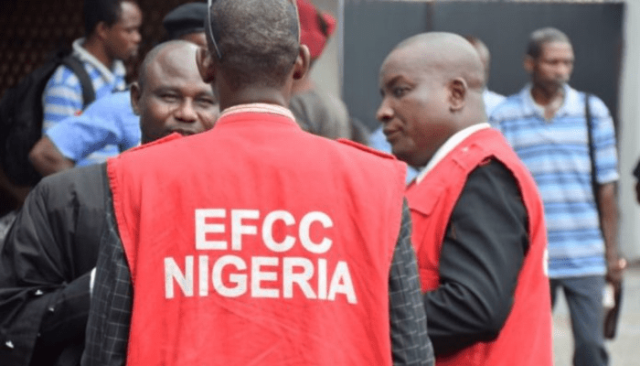The Economic and Financial Crimes Commission has revealed that some foreign missions in the country were using third parties to transact in foreign currencies.
The commission however, described the act as illegal under Nigerian law.
The EFCC spokesperson, Wilson Uwujaren, disclosed this during an interview on The Morning Show on Arise Television.
Uwajaren said, “What actually happened is that the commission, over time, observed that a number of the foreign missions, by how they handled consular services, have engaged third parties to carry out consular services on their behalf, and those third parties have been invoicing in dollars.
“Some even went to the ridiculous extent of determining the exchange rate of the naira in the course of the transaction with Nigerians and some foreign nationals based in Nigeria.
“We thought that that practice conflicted with extant laws and regulations in Nigeria, and we felt compelled to bring this practice to the knowledge of the missions through the Ministry of Foreign Affairs,” he added.
A report on May 11, 2024, highlighted that the EFCC had sent an advisory letter to the Minister of Foreign Affairs, Yusuf Tuggar, titled “EFCC Advisory to Foreign Missions against Invoicing in US Dollars.”
The advisory warned foreign missions against transacting in foreign currencies and mandated the use of the naira.
He stressed that it was illegal for foreign missions to transact in foreign currencies within Nigeria, prompting the commission’s advisory on using the naira.
“We recognise as a commission that foreign missions are representatives of their home countries, enjoy certain diplomatic privileges by international law.
“The commission is not in place to interfere with some of the privileges that they enjoy under international law.
“It is not within the remit of the EFCC to either ban or direct foreign missions in the manner or the way they handle their finances,” the spokesperson noted.
Uwujaren clarified that the EFCC did not directly contact any foreign missions but, instead, informed the Ministry of Foreign Affairs, which is responsible for communicating with foreign missions.
The spokesperson further stated that the EFCC had also put enforcement measures in place to prevent the abuse of the naira and discourage illegal forex practices.




















